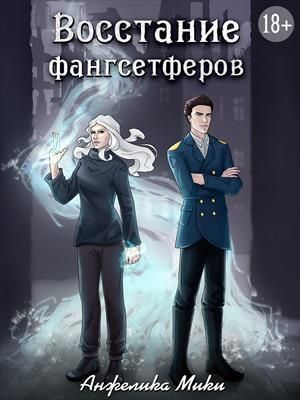Deerskin - Robin McKinley

Помощь проекту
Robin McKinley читать книгу онлайн
One king, their nearest neighbor, sent four matched black horses, without a white hair on them; another king sent a black carriage that gleamed like a mirror. The third king sent a heavy rope of black opals, and the fourth sent a cape of the feathers of the ebony bird, the cost of one of. whose feathers would feed a peasant family half a year. The fifth king, who had been twelve years old when the dead queen had married her true love, sent the same lord as had attended the wedding, older now, and the casket he bore this time contained black pearls.
One day two heralds and three horses arrived, all bearing black stripes on their gear (although some noticed that the stripes were of the sort that could be taken off again), and this was an embassy from the sixth king of the queen's seven suitors.
Their own black-robed king was in his receiving-hall that day, for his ministers had determined that it would be good for him to go through the motions of governing, even though each motion had to be prompted by the ministers themselves. He could not even be trusted to feed himself, these days, but someone must sit next to him and tell him to put food in his mouth for every bite. But he was docile now, unlike the first weeks of the queen's illness; and the harassed ministers wished to believe this an improvement. And so it was the king who welcomed the heralds from the sixth king, or, more accurately, it was his ministers who welcomed them and, when prodded, not very subtly, the king who nodded slowly in an acknowledgement he did not feel.
The heralds noticed that his eyes were steady, if dazed, and they thought that if the rumors heard in their kingdom of his madness had been true, they were true no longer; for here was a man made weak and simple by his grief. So they made the correct obeyances, and were graciously granted leave (by the ministers) to demonstrate what gifts they had brought; and so they opened their baskets, displaying sparkling jars of preserves that the queen and her ladies had put up themselves; and some meltingly supple leather from a deer that the king and his huntsmen had themselves shot, dressed out, skinned and tanned, and dyed a flawless black. And, last, there was a small woven basket-pannier, and the herald who handled it touched it with particular gentleness, and when he set it down, and knelt beside it to lift the loop from the pin that held it closed, it seemed to move of itself, to stir where it sat.
When he opened it he reached in to lift something out: and there was a small silver-fawn-colored fleethound puppy who trembled, and struggled to be set down, and as soon as the herald had done so tried to climb into his kneeling lap, and hide her small slender face under his arm.
"The prince's favorite bitch whelped two months ago," said the herald, while the fleethound presented her rear parts to the court and dug her head farther under his arm. "When he heard of your loss, he begged his parents to let him send the princess one of the puppies."
It was the first time anyone of the court had thought of the princess since the queen fell ill.
Her nursemaid had seen to it that they watched the long days in and out of the queen's long decline; and the nursemaid sank deeper and deeper into her grief, and the girl herself grew more and more silent and withdrawn, for her nursemaid had been her only lasting companion for as long as she could remember. And when the queen died, the nursemaid saw to it that the princess had a black dress to wear to her mother's funeral, and a black scarf to tie up her dark soft hair, and black boots for her feet, black stockings for her legs, and black gloves for her hands; and a black cap, gloves, and overskirt for herself. For even in her grief she knew what was required, just as she had seen to it that both she and the princess bathed every day, and had enough to eat, and proper clothing as the season changed. But it did not seem to her strange that the court forgot the princess in its preoccupation with the queen, for she would have forgotten the princess herself, had it not been her job to take care of her. There was no hauteur in her when she made sure of the necessities for herself and the princess.
The two of them had gone to the funeral, quietly, like any other mourners from the vast royal household; and if any recognized them as perhaps having a special place in the affair, no mention was made nor notice taken. The king and queen had absorbed all their people's attention for as long as they had been king and queen; there had never been anything left for the princess. That there might be something odd about this, even wrong, occurred to no one; their king, their queen, were too glorious, too luminous, too superb, for there to be anything wrong with them. That they forgot their child themselves, and distracted their people into forgetting her also, was merely a natural result of their perfections, as was the fact that the princess had no place and no purpose. No one of their people could imagine the country without this king and this queen. The idea that this child of theirs was their heir was incomprehensible; as if someone had suggested that a tadpole might inherit the sea upon the death of water. At the queen's funeral no one was capable of thinking beyond the fact that this was the end of their world.
The nursemaid and the princess stood with the two housemaids who most often attended to their simple needs, and who had helped in making up the princess's mourning clothes. The princess looked around quietly into the faces of her parents'
people, last of all looking in her nursemaid's face, who was as dazed as anyone else in the kingdom-as the king himself. She had worshipped the queen with every breath she took, and had sought the position of caring for her daughter because she was her daughter.
The princess was in a daze also, but her confusion had more to do with perplexity than with sorrow. For what she realized was that her mother's death had no effect on her, but only on those around her. But this was so amazing to her that her amazement looked like grief, had there been anyone to notice.
She had grown up understanding that almost all those around her, chiefly her nursemaid but also the maids and the occasional courtier or minister who thought it politic to visit her, and certainly her parents, on those rare occasions that she was summoned into their presence, desired her to be biddable. For the most part she had acquiesced in this. She knew no other children, and never guessed the noisy games that most children play; and she learned very young that when she cried or was cross she was likely to be left alone; and as she had so little companionship she was unwilling to risk the little. She could not remember her babyhood; her first memories were of her nursemaid telling her stories, stories about her mother and father in the years before she was born; her second memories were of asking for those stories to be retold.
Her first rebellion, although she did not know it, was in learning to read. She learned rather easily, which was remarkable, for the nursemaid was an even worse teacher than she was a scholar. With the curious stark comprehension of children, she knew that her nursemaid's reluctance to read stories from books was because she was not good at it, and that it would be as well not to tell her that it was otherwise with herself. But the princess had seized on this thing not commanded of her, unlike dancing and riding and deportment, and soon came to treasure it; for books were companionable.
Somehow the occasional ladies who wished to pet her-either for her own sake, or for the sake, as they hoped, of their husbands' careers-rarely came to see her more than a few times. The queen, the nursemaid told the princess reprovingly, when she showed signs of missing a very young and playful lady who had contrived to visit her nearly a dozen times before being banished as mysteriously as the rest, was very strict about who might be permitted to cultivate her only child. The young and playful lady had not only taught the princess games that involved running and shouting, but had brought her fresh new storybooks, and helped her to hide them from the nursemaid; and although the princess noticed that this seemed to make the lady unhappy, she refused to fell the little girl why. But the princess had let herself be consoled for this loss, for she was still very young, when the nursemaid look her on her lap and told again their favorite story.
She thought of that lady now; it had been years before she had quite given up the hope that she would see her again (though she never told her nursemaid this) and had looked around her, shyly but eagerly, on such state occasions as she attended on her parents, seeking one face amoung the many faces in the crowds gathered to pay her parents homage. But it was all so long ago now that the princess doubted she would recognize the lady's face even if she did see her again; and she would be older now, and perhaps no longer playful. Then she surprised herself by thinking that if she could remember the lady's name, she might ask for her. The surprise was so severe that any chance that she might recall the name she wished fled forever; and she sat very still, as if she might be caught out at something.
But she knew her mother's death had changed her position in the royal household, though she did not know how. It was enough, for the moment, that she no longer believed in the shining figures of her nursemaid's stories, though she dared not think why.
Something had happened to her the evening of her twelfth birthday, three years ago now, when she sat on the glittering chair and watched her parents dance. Some time during that long evening, after she had sent her prospective dancing-partners away, she had looked thoughtfully at her hands, with their clean nails and soft palms, and at her legs, hidden beneath their long skirt, and she had wondered, as a hero might wonder before stepping across the threshold of a great Dragon's lair, what these hands and legs might be capable of.
It was a question that had returned to her a number of times over the next weeks, making her restless and peevish; but when her nursemaid spoke to her sharply, she subsided, as she had always subsided, for she had no words for what she felt was trying to express itself. There was no outlet for the wondering, nor for the emotions that it caused; and her life did not change, nor had she any idea of how she might make a change, or what she might like that change to be. And so while she was aware of some quiet evolution going on in her heart and brain, she did not know what it was and, to a great extent, did not seek to know, for she could imagine no good coming of it. What the first twelve years of her life had taught her chiefly was patience, and so she held patience to her like a friend, and went on being quiet and biddable. One new pleasure she gave herself, and that was to observe what went on around her; and she began to have thoughts about the palace and the people in it that would have surprised her nursemaid very much.
But then the queen's illness overshadowed all else, and any idea, faint as it had been at its best, of trying to explain to her nursemaid what she was thinking about, what made her uneasy, faded to nothing, and she tried not to pursue these thoughts while the queen lay dying, for it seemed to her that it was disloyal. The fact that it did not feel disloyal to be anxious and preoccupied with her own thoughts while her mother lay dying distressed her; and the distress was real enough, and she clung to it.
She was sitting in a window seat, as she often sat, staring out of the window as she often stared, turning over her bewildering and possibly traitorous idea, and the even more bewildering ideas that fell from it, like sparks from a burning stake, all of which seemed somehow connected with that earlier wondering of what she might be capable of. She still could not imagine uttering any of her musings aloud; and she glanced down at her mourning clothes. The nursemaid sat by the cold hearth, hugging and rocking herself, absorbed in her own grief; dimly aware of the creature comfort of the presence of another human being, assuming that the princess was as mazed by grief as she was-no more and no less. That the princess was the queen's daughter left no special mark on her; all the nursemaid knew was that her own grief was overwhelming, and that she had no attention to spare from it.
The knock on the door surprised them both, for it was not time for a meal or a bath or a ladylike walk in the formal gardens; and they both started in their seats. The door was flung open after a minute of silence, and a footman stood there. The nursemaid fell out of her chair to curtsey, for this was an upper footman, and he did not look at all pleased with his commission. "Her highness's presence is requested in the receiving-hall. At once." He turned and left immediately. He did not close the door.
"Oh! Oh!" cried the nursemaid. The princess stepped down from tier perch and let the maid flutter around her, still murmuring, "oh, oh ---oh." The princess herself combed her hair, and asked her maid, in a clear, careful voice, to press her black ribbons for her, and shine the toes of her black boots, while she washed her face and put on her new black stockings. She was perfectly composed as she walked out of her chamber, the nursemaid still bobbing after her and murmuring, "Oh!"
The princess walked down the stairs, her boot-heels clicking to the first landing, for the final flight to the nursery was uncarpeted. She had consciously to recall the way to the receiving-hall, for she went there so rarely, and it was down and down long twisting corridors and more flights of stairs. The footman had, of course, not waited to escort her. She paused, hesitating, at a final corner, and looked round, and knew she had come the right way after all, for at the door of the receiving-hall the upper footman stood, still stiff with outrage at having to climb to a region of the palace where the stairs were uncarpeted, and with him were two lower footman and two pages.

























